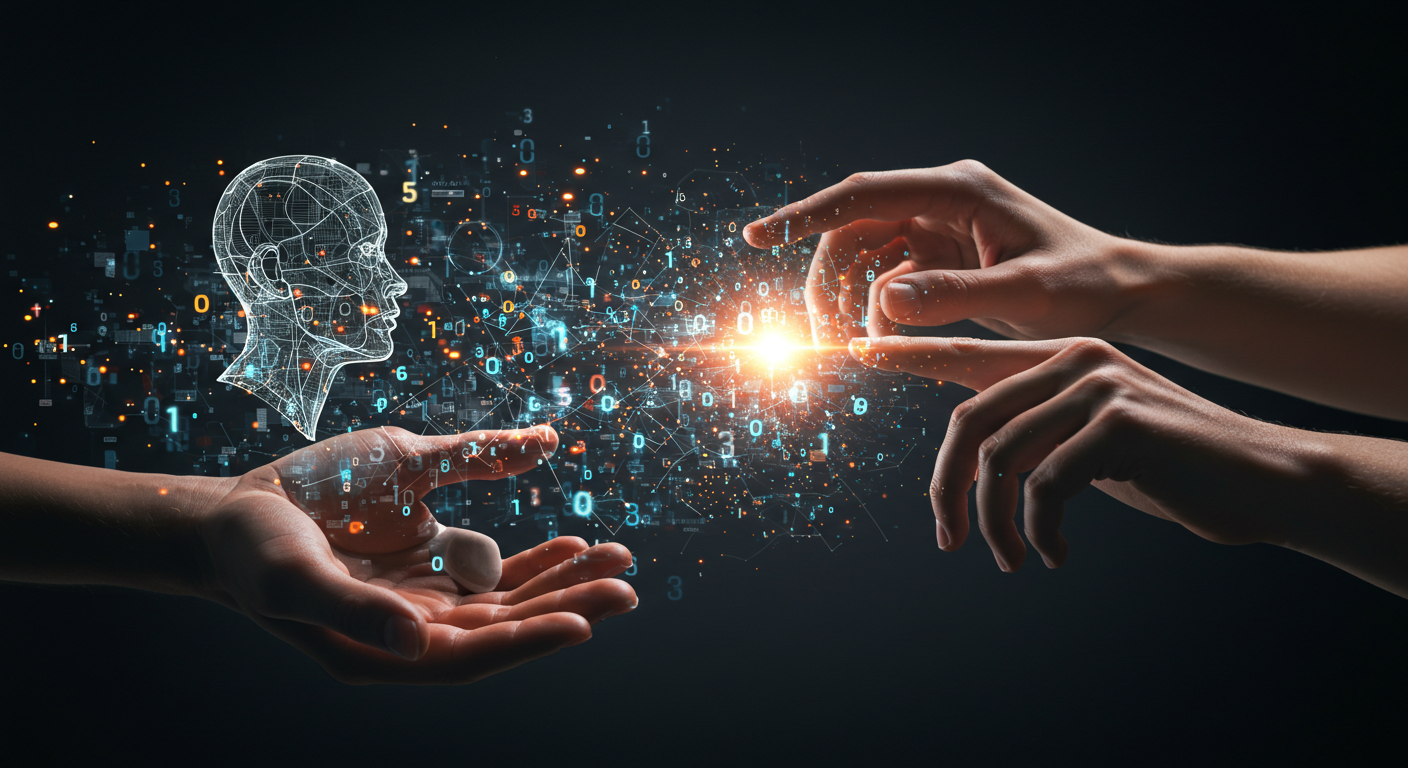In a world increasingly defined by algorithms and automated interactions, a paradox develops in marketing: the more powerful our AI tools grow, the more deeply we seek the distinct resonance of the human touch. It’s 2025, and while AI has permeated every aspect of marketing operations, from hyper-personalisation to predictive analytics, the ongoing challenge for brands is not just how to deploy these powerful technologies, but how to do so while maintaining the very essence of human connection and authenticity.
The concern that marketing will become sterile, cold, and transactional, robbed of its soul by the inexorable march of automation, is palpable. However, forward-thinking brands are demonstrating that the future isn’t about choosing between human and machine; rather, it’s about striking an exquisite, intelligent balance that combines human creativity with algorithmic efficiency, resulting in experiences that are both deeply engaging and genuinely authentic.
The allure of AI in marketing is undeniable. It promises unprecedented efficiency, scale, and data-driven precision. AI can analyse vast swathes of consumer behaviour, identify patterns invisible to the human eye, automate mundane tasks like email segmentation and ad bidding, and even generate preliminary content drafts or optimise website layouts in real-time. This capability frees up marketers from repetitive chores, theoretically allowing them to focus on higher-level strategic thinking, creativity, and empathy, the very human qualities that machines cannot replicate. For instance, AI-powered chatbots now handle initial customer queries with remarkable speed, resolving common issues instantly.
This automation is beneficial to customer service, but the true brilliance lies in its ability to seamlessly transfer complex or emotionally charged interactions to a human representative, ensuring that when empathy or nuanced understanding is required, a real person steps in, informed by the AI’s previous interactions. It’s a delicate dance: AI manages the predictable, while humans grasp the unpredictable and emotional.
The issue, however, is to keep this efficiency from devolving into cold calculations. Customers, especially in a market as lively and relationship-driven as Nigeria, are very sensitive to robotic interactions. They cherish authenticity, a sense of true understanding, and a relationship that extends beyond a transaction. Human-centric features such as a brand’s tone of voice, innovative storytelling, and responsiveness to real criticism help to develop trust and loyalty. In this case, AI is a helpful helper rather than a replacement. Consider content creation: AI can analyse popular themes, provide appropriate keywords, and even create rudimentary outlines.
However, it is the human copywriter who imbues the text with wit, cultural significance, emotional depth, and a brand’s personality. The human designer creates graphics that elicit emotion, while the human strategist understands the intricacies of local proverbs or contemporary societal feelings to produce advertisements that connect. The greatest businesses use AI to better understand their customers, forecast what they might need next, and provide that information or product via channels that seem personalised, personal, and respectful.
Furthermore, the human touch extends beyond content to the relationship that a business fosters with its consumer. Genuine engagement, for example, is key in community management. While AI can detect mentions and sentiments on social media, it requires a human moderator to interact honestly, manage debates, and answer with true care and compassion. Personalisation, which is frequently touted as an AI victory, works best when it seems intuitive and useful rather than obtrusive or frightening.
Read also: Navigating the ROI maze in advertising’s multi-channel future
AI can recognise a customer’s previous purchases or browsing history, but a human marketer creates a personalised trip that seems more like a helpful buddy making pertinent suggestions than a cold algorithm watching every step. This meticulous orchestration entails issues, and emotionally sensitive messaging is always subject to human review. It is about empowering humans with AI-driven insights to make more sympathetic and meaningful decisions, rather than giving up complete control.
In summary, the age of automation is not a period of dehumanisation in marketing, rather, it is an era that raises the human element to even greater strategic relevance. AI performs the hard work of data, scalability, and repetition, allowing marketers to focus their efforts on creativity, empathy, strategic thinking, and authentic human connection. The most successful businesses in 2025 will be those that understand this complex dance: computers anticipate, but humans relate; automation optimises, but creativity inspires; and data informs, but empathy directs. They recognise that, although AI can construct the connection, it is the human touch that ensures the experience is authentic, engaging, and unforgettable.
Also Watch:MARKETING EDGE ONTV







Comment
No comments found.